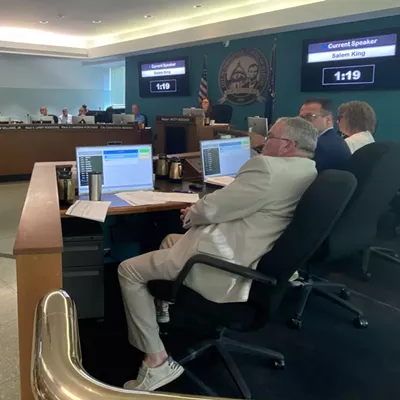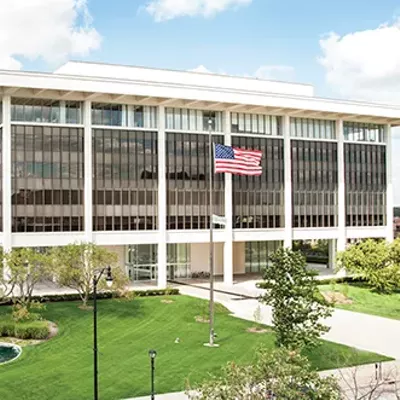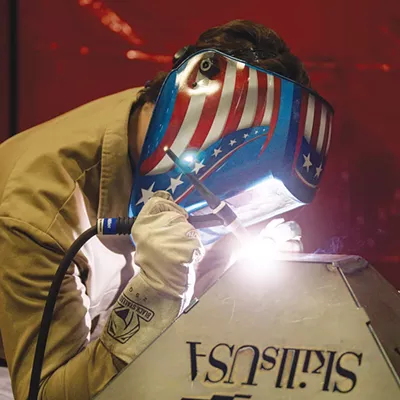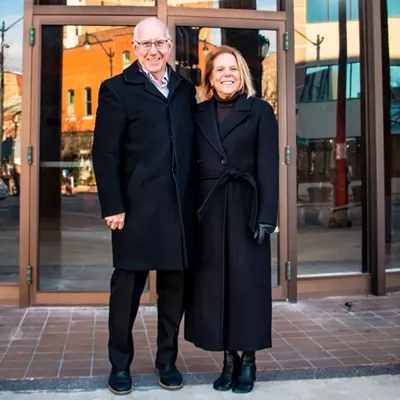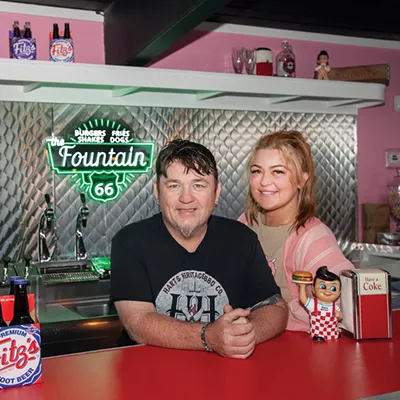BY MEREDITH HOWARD
Although women earn 50.3% of all science and engineering bachelor’s degrees, they account for only 29% of the science and engineering workforce, according to the National Girls Collaborative Project, which encourages girls to learn about and work in STEM fields. Despite this statistic, Springfield is home to many female business owners and managers with a STEM focus. There are countless different paths one can take to end up working in STEM, and some Springfield women have followed routes that may seem unusual. Michelle Tjelmeland was a school teacher before she had to change careers after becoming deaf during pregnancy. “I had to reinvent myself, basically, because I could no longer hear,” Tjelmeland said. She decided to earn her master’s degree in education and computer technology from the University of Illinois at Urbana-Champaign, because she “didn’t need to be able to hear in order to build websites.” She has since started two businesses and one nonprofit organization. Tjelmeland founded her first business, e-websmart, in 1999. E-websmart specializes in responsive design and development, social media marketing, graphic design and franchise marketing development. In 2005, Tjelmeland founded the Cochlear Implant Awareness Foundation, which provides resources and information, as well as implants, to families in need. She was motivated to help other families receive cochlear implants because this device allowed her to hear again. One of Tjelmeland’s daughters, Ellie, also received this implant because she was born deaf. Tjelmeland then started a retail boutique, District 23 Mercantile and Foundry, to help fund her nonprofit. However, Tjelmeland’s primary business is still e-websmart. “I think the biggest challenge in any sort of technical business is trying to stay abreast and on top of technology, and you know it changes so rapidly… Facebook changes their website, their app, everything, on a daily basis,” Tjelmeland said. Susan McCormick, a civil engineer with Hanson Professional Services Inc., cited the same issue. “With this type of field, there’s always new technology, just the changes in how we do things,” said McCormick, who has worked at Hanson since the early 1990s. “When I first started here...we were just starting to use computers to design things. And now, it’s unbelievable what computers can do to help us with our design,” McCormick said. While civil engineering is one of the fields that have the fewest women (17.5%), McCormick said she wasn’t bothered by sometimes being the only woman in the room. “I have noticed at meetings, or just kind of everywhere you go as far as different firms or whatever, that there’s not too many women. But it was never an issue,” said McCormick. Julie Shipp, who began her career in 2008 as a civil engineer at Hanson, said that she became used to working in a field that is male-dominated when she was in college and had few women classmates. She said that she has felt welcomed as a woman in engineering, and that it doesn’t make a difference to her whether her colleagues are men or women. Shipp said that one challenge she has faced working in engineering was the need for accuracy. “Because we do deal with public safety, building roads, and bridges, and intersections, and things like that, our end product has to be correct,” Shipp said. When asked if she felt supported throughout the process of learning how to be an engineer, Shipp said, “The people here at Hanson are incredible. They work as a team, and the project managers really want to make sure that the engineers are doing their jobs, and doing it well, and have everything that they need.” Not every STEM field is as team-oriented as engineering. Although scientists sometimes work in groups, the field is generally individualistic. “It is very cutthroat, and that’s something that I didn’t quite understand with science...we’re non-for-profit, we don’t make money, so I wasn’t really expecting everyone to be so cutthroat in this field, but it is,” said Andrea Braundmeier-Fleming, an assistant professor at Southern Illinois University School of Medicine. Braundmeier-Fleming also said she was supported, though, and felt that could make or break a science student. “I was very lucky that no matter what environment I chose, I had strong mentors,” Braundmeier-Fleming said. Sheila Feipel, Springfield branch manager for HEART Technologies, echoed Braundmeier-Fleming’s statement that support is paramount to succeeding in one’s field. “It’s amazing to me how mothers encourage their daughters to do jobs that they think are appropriate for women, instead of saying, chase your dream, you can be all you want to be. You hear those things, and subconsciously it affects the way you look at your self-image, it affects the way you perform. So, I want people to start changing the narrative,” Feipel said. Feipel is a first-generation college graduate, and she planned her high school classes carefully so as to increase her chances of being accepted to college. She said that when she was a high school student, girls were required to take a home economics class and boys were required to take shop class. Feipel found it important to take a chemistry course during her senior year, but she was told she was unable to because home economics was required for graduation. “I said no, this is hurting my chances of going to college,” Feipel said. “So I found myself before the school board.” Feipel said that after she addressed the school board about her concern, the board decided to change its policy so that home economics would be an elective course. Feipel was then able to take chemistry in its place. Attitudes in schools surrounding what subjects should be prioritized have since changed. Dubois Elementary School, which is in District 186, has a curriculum that encourages children to learn about STEM fields. Jaycie Nolting, an eight-year-old student, said that she learned about coding beginning in her first grade classroom. Jaycie was taught about the basic functions of coding by playing games on her tablet. “It was fun, I liked it,” Jaycie said. In contrast, Carol Kneedler wasn’t introduced to computers educationally until she was in college, when her mother encouraged her to study computer science. Kneedler now owns O3 Internet Consulting, which specializes in online marketing, website design, social media and email marketing. Kneedler graduated with a bachelor’s degree in math with a concentration in computer science in the 1980s. She said that when she was a college student, she didn’t take a single computer science class that was taught by a woman. Although Kneedler didn’t have any female computer science professors to learn from, her mother worked in engineering and prompted her to pursue a STEM field because “computers are getting to be the thing.” “She was a pretty smart cookie,” Kneedler said.
Meredith Howard is a summer intern with Illinois Times and Springfield Business Journal. She was the editor-in-chief of LLCC’s student newspaper and she plans to attend Baylor University in the fall, majoring in journalism.

